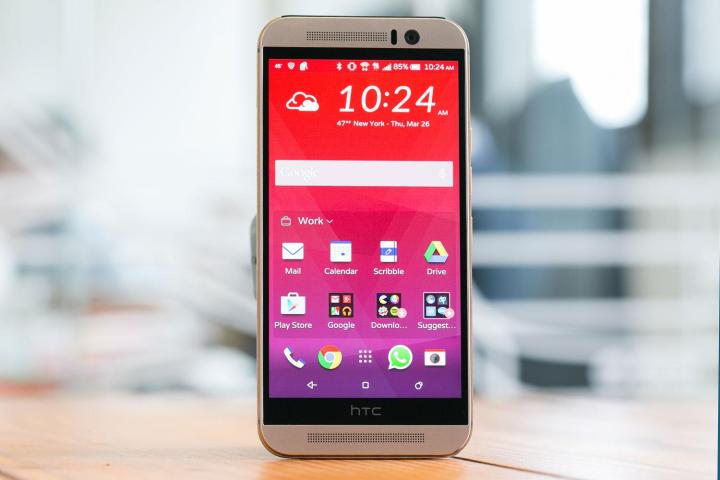
“Revenue for last month was weaker than expected, which was due to poor M9 demand.”
HTC posted NT$13.5 billion ($440 million) in revenue for April, which is a huge 33 percent decrease from March. The figure was also a whopping 39 percent lower than the revenue HTC posted during the same period last year. To make matters worse, this is the lowest monthly revenue for April that HTC has reported since 2009, when it made NT$11.4 billion.
HTC’s One M9 flagship, which was supposed to raise the company’s fortunes and increase revenue substantially in 2015, wasn’t even on sale in March, and yet HTC managed to post higher revenue without its flagship on store shelves. Many analysts cited the One M9’s failure to appeal to customers as the prime reason for April’s low revenue.
“Revenue for last month was weaker than expected, which was due to poor M9 demand,” an anonymous Yuanta Securities Investment Consulting Co. analyst told the Taipei Times. “HTC might have underestimated the Qualcomm [Snapdragon] 810 processor’s thermal issue, and this has resulted in poor reviews and concern from carriers.”
Indeed, in our review of the One M9, we noted a marked heat increase during heavy-duty processing tasks, video streaming, and app downloading. The battery life also suffered dramatically, and we came away disappointed by the device on the whole. Although it’s hardly conclusive evidence, the fact that LG opted to use the Qualcomm Snapdragon 808 processor in its G4 instead of the 810 seems to indicate that the overheating issue is very real and troublesome.
Additionally, shortly after HTC introduced the M9, it also showed off the M9+ for China and other markets. The M9+ sports more high-end specs and looks to be more appealing than the standard M9 that made its way stateside. While the launch of that model may help HTC’s sales increase, it seems that the original One M9 is something of a failure at this point.
Analysts appear to be pessimistic about HTC’s chances to win over customers in 2015, regardless of the other models the company releases this year. BNP Paribas predicts that HTC will ship just 18 million smartphone units in 2015, which is a decline of 13 percent compared with 2014’s figures.


